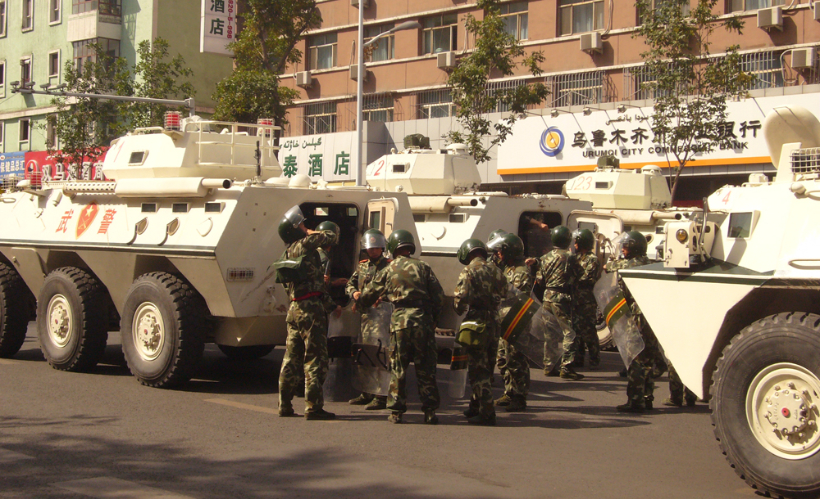Beijing dismisses reports of enormous abuses in Xinjiang

As we noted in our Access newsletter yesterday (paywall), several events coincided over the weekend and on Monday that signaled the world is really starting to notice the abusive social engineering program underway in China’s Xinjiang region.
- The New York Times featured, front and center on its September 9, Sunday national issue a report filed by Chris Buckley and Austin Ramzy a day earlier, titled, China is detaining Muslims in vast numbers. The goal: ‘transformation.’ (porous paywall).
- Human Rights Watch released the most detailed and comprehensive report yet of witness testimony from the re-education camps in Xinjiang, and the families and lives torn apart by arbitrary detentions and the police state: “Eradicating ideological viruses”: China’s campaign of repression against Xinjiang’s Muslims.
- The new UN human rights chief, Michelle Bachelet, a former Chilean president, highlighted her concerns over “deeply disturbing allegations of large-scale arbitrary detentions of Uighurs and other Muslim communities, in so-called re-education camps across Xinjiang,” and called on China to allow UN monitors into the region.
- Sanctions on Chinese officials and companies complicit in abuses in Xinjiang are being considered by the U.S., the New York Times reported later on Monday.
- Muslim groups in Bangladesh and Australia also protested the abuses in Xinjiang.
Harmonious coexistence of different ethnic groups
China, via its foreign ministry, responded dismissively to the Human Rights Watch report on Monday (transcript in Chinese, transcript in English), and rebuked the UN human rights chief’s requests on Tuesday (transcript in Chinese, transcript in English).
- Instead of addressing any specific allegations of abuse in the Human Rights Watch report, spokesperson Geng Shuang 耿爽 attacked the NGO’s credibility: “This organization has formed a habit of treating China with prejudice, distorting facts and stirring up troubles.”
- The ministry insisted that there is no ethnic tension in Xinjiang: “Xinjiang is enjoying overall social stability, sound economic development and harmonious coexistence of different ethnic groups.”
- And then on Tuesday, the ministry attacked the UN human rights chief: “the UN Human Rights High Commissioner and her office should abide by the purposes and principles of the UN Charter, respect China’s sovereignty, fairly and objectively fulfill its duties, and not listen to and believe one-sided information.”
- “China says nothing to hide in Xinjiang, but UN unwelcome,” is effectively the message being conveyed here, as reporter Chris Horton points out.
New attention to details from Xinjiang
Meanwhile, details of the scope of surveillance and suppression in Xinjiang continue to gain attention. Here are three recent links:
-
China installing QR codes on Uighur Muslim homes as part of mass security crackdown / The Independent
One of many details in the Human Rights Watch report that has been gaining attention: A former resident of Xinjiang says, “Starting from spring 2017, in every home where one enters there’s a QR code…Then every two days, or every day, the cadres come and scan the QR code, so they know how many people live here – and starting around then, they would ask [our] visitors, ‘Why are you here?’ In the evenings the cadres would check as well.” -
How China is gaining political influence through social management / Pacific Standard
Michael Clarke, an expert on Xinjiang at Australian National University, writes that “The Chinese Communist Party is exploiting and exporting technological innovations to establish a panoptic form of governance—one through which it becomes possible for the state to constantly monitor individuals.” Xinjiang has been increasingly recognized as a sort of “frontline laboratory for surveillance” since scholar Adrian Zenz used that phrase to describe Xinjiang to Buzzfeed almost a year ago. - If you haven’t seen or read at least some of Adrian Zenz’s groundbreaking research that unveiled the massive scope of detention centers for re-education in Xinjiang, you can find it in its final, peer-reviewed form without a paywall here.






